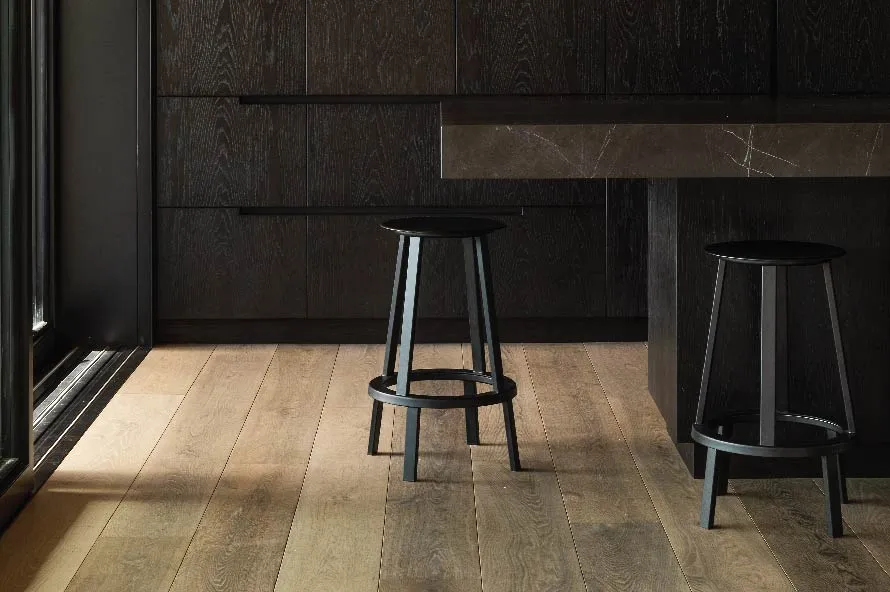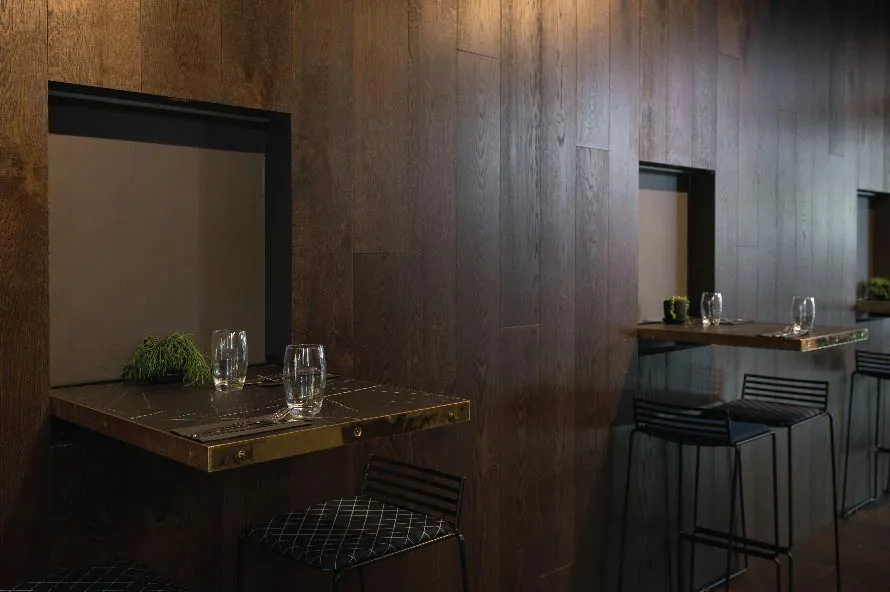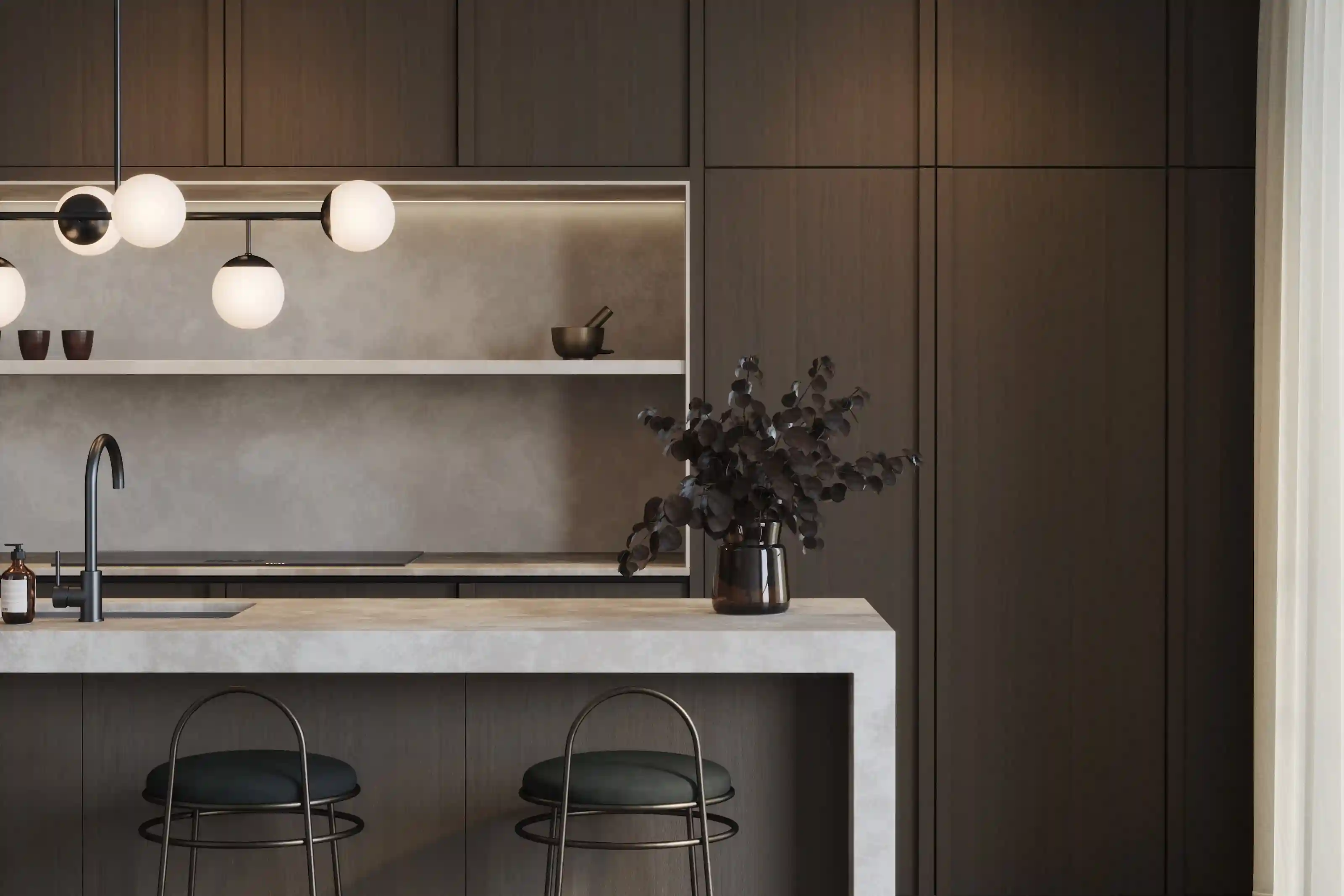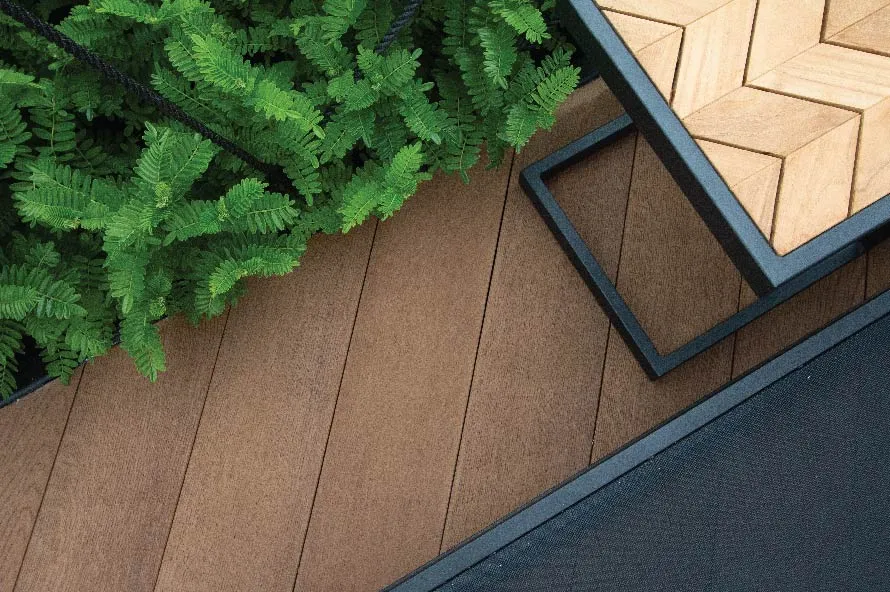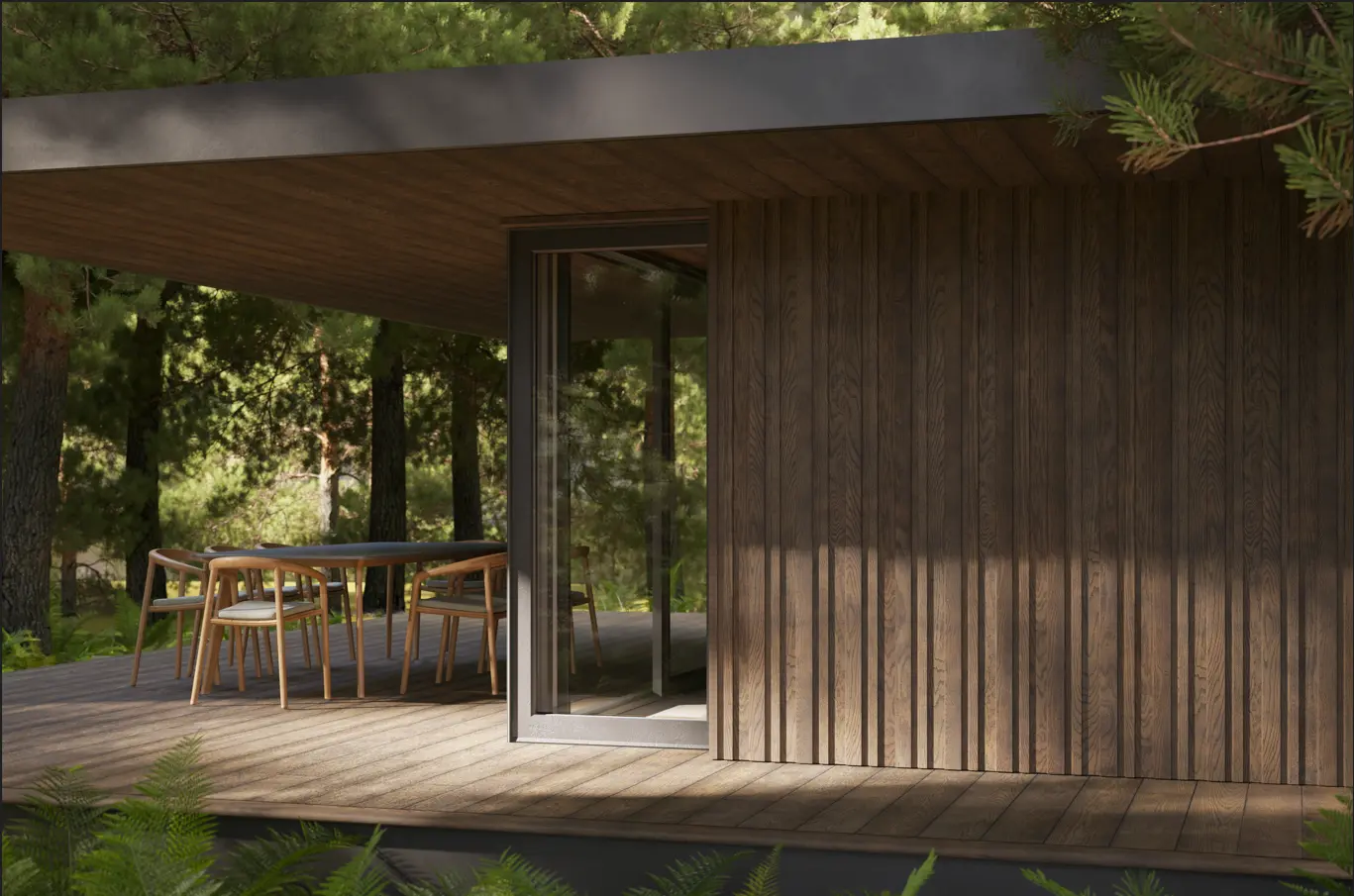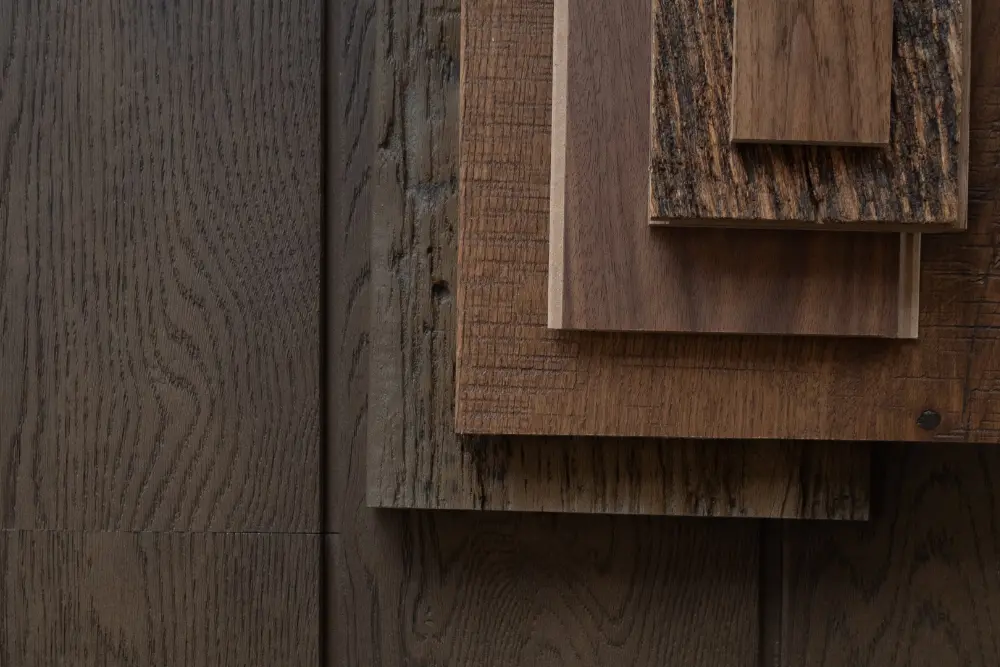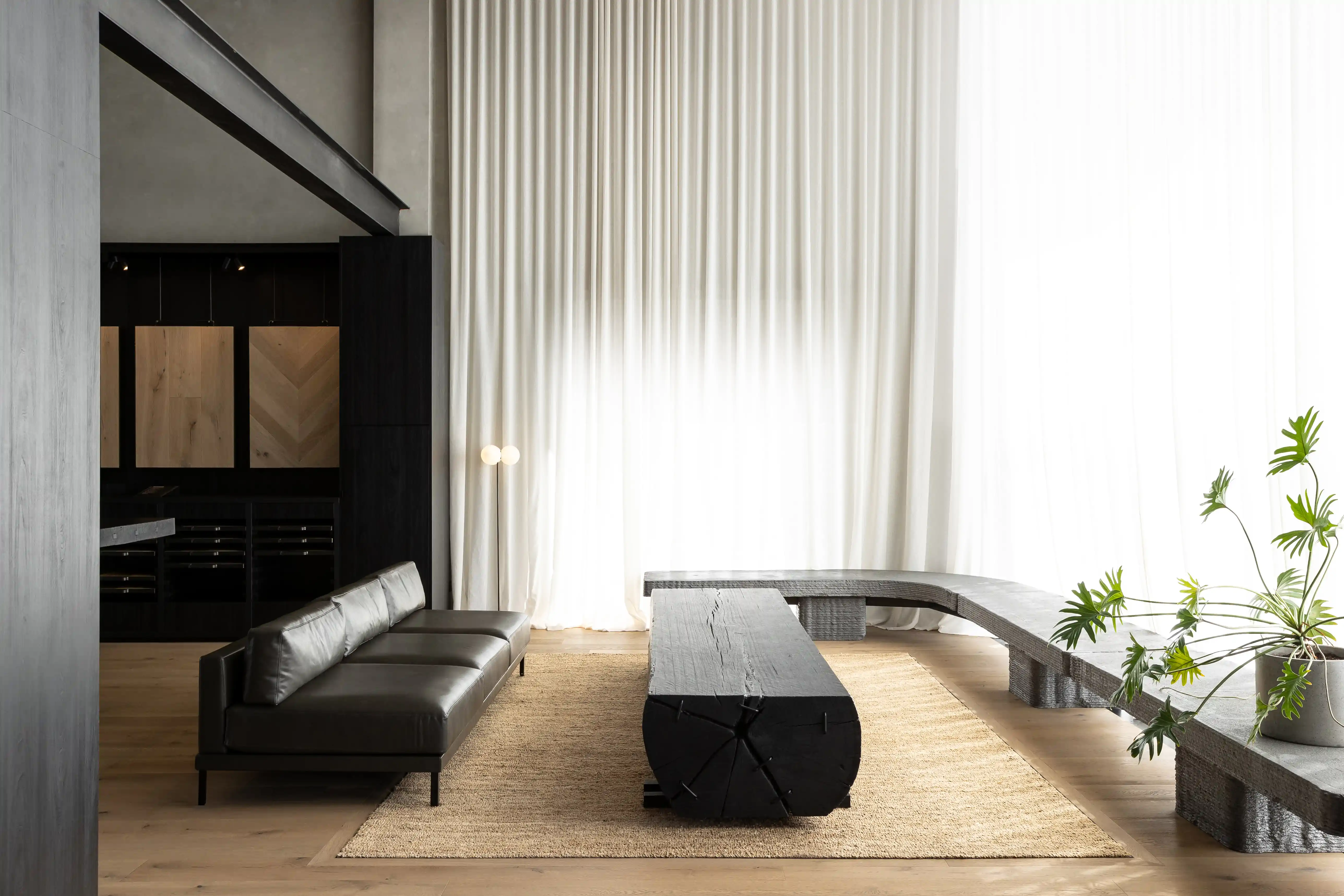The effects of sunlight and UV on wood flooring
October 19, 2022
All natural products are affected by light. Strong sunlight and UV rays can have a significant effect on timber floors, causing shrinkage, breakdown of the finish and accelerated oxidation, which can result in extreme fading or colour change if the surface temperature is too high.
While some colour change is inevitable over time, it is important to note that there are some factors that can intensify the sunlight and UV exposure in your home such as light reflected from shiny surfaces nearby. This can be caused by types of cladding or from water sources such as the ocean, swimming pools and ponds.
Note: The maximum floor temperature, when exposed to direct sunlight, should not exceed 45 °C.

What happens when wood flooring is exposed to harsh sunlight/UV?
- Shrinkage resulting in splitting or cracking
- Extreme fading and colour change
- Accelerated breakdown of the product's coating (provided the product has a finish)
- Separation of the base layers (delamination) in engineered products
Fading & Colour Change
Timber left exposed to direct, unfiltered UV rays will noticeably change in colour in the first 1-3 months. Changes in appearance may include darkening, lightening, or yellowing of the timber.
The precise effect on colour depends on a variety of factors including but not limited to; the species, any type of treatment that the wood has undergone, whether the timber has been coloured, and the type of finish used on the product.
- Light & natural coloured wood flooring
Natural Oak with no stain and a clear lacquer are known for changing colour over time to become a yellow / orange colour when exposed to direct sunlight.
- Dark / black wood flooring
Black and dark coloured surfaces absorb a lot of heat, therefore dark timber products (particularly where installed in sunny areas) are prone to becoming extremely hot. When timber becomes very hot, especially after prolonged periods of time, this can lead to major damage to the product.
Darker coloured timber has the opposite effect to natural coloured oak and experiences extreme fading.
Breakdown of finish
Sunlight and UV exposure, together with extreme heat generated by the sun, can cause the finish on timber products to break down prematurely, particularly on darker coloured timber products.
Providing protection from sunlight and UV exposure will help prolong the lifespan of your floor's finish.
Shrinkage
Timber when exposed to direct sunlight can get extremely hot, especially darker coloured floors as they absorb heat. This can cause the wood to dry out and shrink, resulting in the formation of splits and cracks.

Protecting your wood flooring from Sunlight/UV
To minimize the risk of colour change and shrinkage, ensure you are providing adequate protection from sunlight and UV, as well as sufficient cooling in warmer weather.
Consider these measures as a long-term investment as they will not only protect your timber floor and/or wall panelling, but your carpet, furniture and other décor as well.
Note: The below considerations should be regarded for homes that have large, north-facing joinery or homes that are north facing with no soffit as they are more susceptible to long periods of harsh sunlight.
UV glass protection
To prevent oxidation, ensure coating longevity and structural integrity, we recommend UV-protected windows. Coatings, treatments and films can be applied to the glass doors and windows of your home to increase the UV protection. Ideally you want a product that can block UV rays as well as reduce the heat that enters the space.
Sun filter blinds or sheer curtains (even if just in the main sun-exposed areas)
These are great for filtering harsh sunlight without causing the room to feel dark. Options are available that allow protection from harsh sunlight without inhibiting your view of outside.
Shutters / Venetian blinds / Regular curtains
Make sure you close your curtains, shutters or venetian blinds when the sun is at its harshest. This is usually between 12pm and 4pm.

Rugs and mats
Floor coverings such as rugs should not be placed immediately after laying. Flooring installed under rugs will not be exposed to UV light and will not allow the timber to oxidise. We recommend that rugs and furniture are moved around regularly to maintain even colour variation. This is particularly important in the first 6 months after the floor being laid.
Alternatively, move mats and rugs on a regular basis over this initial period to aid in reducing these effects. You should also consider using mats and rugs that are made from 'breathable' materials (such as woven fabric), avoiding mats and rugs that have solid rubber or vinyl backings that could trap moisture under the rug. Rearranging or moving mats and rugs on occasion will allow the flooring to age evenly.
For more information on how to protect your wood flooring from sunlight/UV damage, please get in touch with our team of experts on 0800 445 494, email us at [email protected] or live chat with us on our website.

